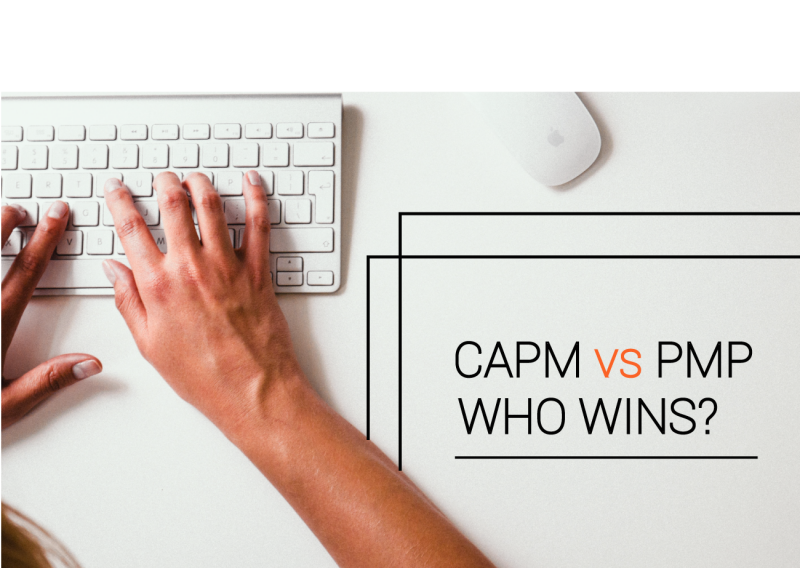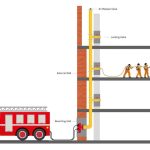The choice between Certified Associate in Project Management (CAPM)® vs Project Management Professional (PMP)® is a big one. The CAPM® and PMP® certifications are both specialized credentials offered by Project Management Institute (PMI)®.
When you know the differences between the
CAPM exam and the PMP exam, you can make the best decision for you and your career. You’ll be able to choose the right certification — whether that is
preparing for the PMP certification or opting for CAPM. The choice you make should be the one that aligns with your personal goals for your career path.
In this article, we’ll look at the differences between PMP and CAPM certifications so you’ll have all the information required to make the perfect choice for you.
What is CAPM Certification?
The CAPM certification is an
entry-level certification offered by PMI for practicing and aspiring project managers.
The credential is aimed at project managers who have limited or no practical experience in the field of leading and managing projects. You might have some experience in a project environment, perhaps as a team member on a larger project, or through helping out with project work.
The CAPM exam focuses on testing your knowledge of project management concepts, processes and terminology.
The main difference, at this point, between CAPM and PMP certifications is that the PMP exam requires you to apply your knowledge. You have to have project management experience in order to be able to sit for the exam.
That makes the PMP certification perfect for people who are in a project management role already, leading and managing teams to deliver projects.
But what if you’ve got some practical experience but don’t feel you’ve really got the background to apply for the PMP exam? Don’t worry, PMI has defined guidelines about eligibility, so let’s look at those next.
What Are the Requirements of the PMP and CAPM Certifications?
In order to apply for the PMP exam, you must be able to demonstrate your prior project management experience.
The criteria are as follows:
- If you hold a Bachelor degree, you need at least 4,500 hours of project experience over 3 years
- If you are a high school graduate, you need at least 7,500 hours of project experience over 5 years.
Regardless of your schooling, you must also be able to demonstrate that you’ve undergone 35 hours of formal PMP project management education, like The PM PrepCast which will provide the hours and the certificate of evidence that you need.
The CAPM eligibility criteria are different. They are as follows:
- You need to hold a high school diploma, secondary diploma or the global equivalent
- You need 1,500 hours of professional experience on a project team OR 23 contact hours of formal education.
As you can see, the major difference between CAPM and PMP requirements is the expectation of experience. You don’t have to have any project experience at all to take the CAPM exam, as long as you’ve done some project management training like the
CAPM PrepCast Training that meets the requirements.
We often see students applying for the CAPM exam without project management experience. Gaining the certification is a way of showing your employer that you are serious about project management as a career.
If you don’t have enough project management experience hours to apply for PMP then your options are either to wait until you do have the experience, or apply for CAPM now. Full details of how to apply are in the
CAPM Handbook.
How Are the Exams Different?
While both the CAPM and PMP exams use
A Guide to the Project Management Body of Knowledge – (PMBOK® Guide) as the primary text, the exams are different. Here’s how.
| Area |
PMP |
CAPM |
| Number of questions |
200 |
150 |
| Duration of exam |
4 hours |
3 hours |
| Number of non-scoring questions |
25 |
15 |
| Format of questions |
Multiple choice |
Multiple choice |
| Method of exam |
Computer-based |
Computer-based |
Both exams use the multiple choice format and the tests are computer-based (although in some special circumstances it may be possible to request a paper test).
Both exams have some non-scoring questions. These are questions that PMI is testing for inclusion in future exams. You won’t know which questions carry marks and which are the non-scoring questions, so the most important thing is to make sure you answer all questions to the best of your ability.
Taking the exam is only part of the journey to becoming CAPM certified. Read our complete guide on
how to get your PMP certification for all the details.
Is the CAPM Exam Easier Than the PMP Exam?
Both exams are difficult! You’ll need to
create a study plan for both, to make sure you have the time set aside to learn what’s needed and practice your exam taking techniques. They have to be, to maintain the rigorous standards and international reputation of PMI and the certification schemes.
Having said that, the feedback we get from students is that because the CAPM exam questions are drawn directly from
A Guide to the Project Management Body of Knowledge – (PMBOKⓇ Guide), the official reference book for the exam, it is easier to prepare for the test.
People who earn CAPM certificates have been through the exam, and will tell you that the questions do not ask you to apply your knowledge. The exam is simply a knowledge test to prove you understand the concepts and terminology of project management.
How Do I Upgrade from CAPM to PMP?
At the point that you take the CAPM exam, you won’t have the experience that is relevant for PMP. So while the PMP exam may sound harder right now, by the time you come to take it, your knowledge and experience will also have developed and with the right training and exam prep, you’ll be adequately equipped to face it.
The CAPM certification will last you 5 years, and there’s more on renewal and validation periods a little bit later in this article. For now, know that when the validation period on your certificate is up, it will probably be the right time to consider your CAPM to PMP “upgrade”.
What Is the Pass Rate for the CAPM Exam?
The pass rate for CAPM and PMP exams is not published. We recommend that you aim to score 75-80% on an
exam simulator before you head to the test center: that will give you confidence that you’re likely to succeed on the day.
How Much Do the CAPM and PMP Exams Cost?
There is a difference in price between the CAPM and PMP exams.
Applying for the PMP certification costs $405 for PMI members and $555 for non-PMI members.
Applying for the CAPM certification costs $225 for PMI members and $300 for non-PMI members.
How Long Is My CAPM Certificate Valid For?
Once you have successfully passed the CAPM exam, it will be valid for 5 years. The 5 years starts at the point that you pass the exam, so from your exam date.
By contrast, the PMP certificate is only valid for 3 years.
How Do I Renew My CAPM Certificate and PMP Certificate?
There are differences with how you renew each certificate. Once your certificate is up for renewal, you have to apply for recertification.
With the CAPM certification, you have to take the exam again after the 5 year period is up.
If you hold the PMP certification, there’s no need to take the exam ever again! Instead, you have to prove your commitment to continuous professional development by documenting your development over the 3 year period. This is done by taking part in the Continuing Certification Requirements program and recording Professional Development Units.
By the time your CAPM certificate is up for renewal, you will have most likely amassed enough project management experience to apply for the PMP exam. You could take the CAPM exam again, but it would be a better career choice to go for the PMP exam if you are now eligible. If you are eligible and still interested in a career as a project manager, upgrading to the PMP certificate at this point would be a good choice.
What Are the Benefits of CAPM vs PMP Certification?
When you’ve made a plan to
get your CAPM certification is recognized to distinguish you from other candidates in the market. There are career benefits that come with holding a CAPM certification including:
- Recognition of your achievement from an industry professional body
- Respect from your project management peers
- Greater confidence in your abilities, both personally and from your colleagues
- The possibility of career progression and/or a higher salary at work.
The PMP certification also has benefits to you as an individual:
- Professional recognition from the industry and your peers
- Salary survey research shows higher salaries for PMP certification holders compared to non-certificated project managers
- Assurance that you understand and have experience of project management processes
- Achieving an internationally-recognized certification could help you gain a new role and greater professional responsibility.
While both certifications have benefits, the CAPM certification is not considered as prestigious as the PMP exam. It’s hard to tell whether there’s a CAPM vs PMP salary benefit, because the PMI salary survey doesn’t publish CAPM information. It only covers salaries relating to PMP certification holders. However, it’s reasonable to expect that while any salary bump wouldn’t be as much as if you were a PMP certificate holder, you could expect to attract a higher salary than someone who doesn’t have any certificate at all.
Both give you access to a range of professional resources and an international network of fellow certificate holders.
How Do PMP and CAPM Compare?
In this article we’ve looked at a number of similarities and differences between CAPM and PMP certificates. The table below summarizes the comparison.
|
PMP |
CAPM |
| The eligibility requirements |
Bachelor’s degree and 4,500 experience hours over 5 years OR high school diploma and 7,500 experience hours over 5 years AND 35 hours of formal project management education |
High school diploma AND 1,500 experience hours OR 23 hours of formal project management education |
| What is examined |
Project management knowledge and the ability to apply that knowledge to real scenarios |
Knowledge of project management processes and terminology |
| The exam format |
200 multiple-choice questions in 4 hours |
150 multiple choice questions in 3 hours |
| The difficulty level |
Widely considered difficult |
Widely considered challenging (but not as difficult as the PMP exam) |
| The renewal process |
Earn 60 PDUs over 3 years to recertify |
Take the exam again after 5 years |
| The benefits |
Greater credibility and confidence
New job opportunities
Potential salary increase |
Greater credibility and confidence
New job opportunities
Potential salary increase |
| The cost |
$405 for PMI members and $555 for non-PMI members |
$225 for PMI members and $300 for non-PMI members |
What is Right For You: CAPM or PMP?
Both certifications have their pros and cons. They are both highly respected project management certifications that are appropriate for people at different stages in their career.
Only you can make the final decision, based on which certificate you are eligible for and what your end goal is with your career.




